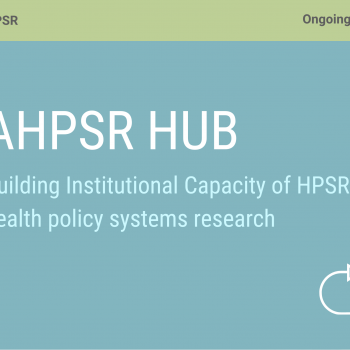Category Archive for "Policy Work"
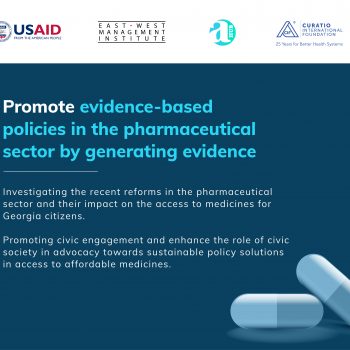
Promote evidence-based policies in the pharmaceutical sector by generating evidence
The project will achieve the aim through two objectives: Investigate the recent reforms in the pharmaceutical sector and their impact on the access to medicines for Georgia citizens.
Promote civic engagement and enhance the role of civic society in advocacy towards sustainable policy solutions in access to affordable medicines.
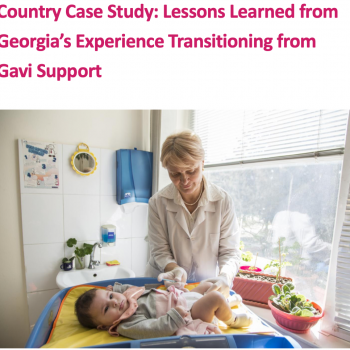
Georgian NIP faces challenges in sustaining the outcomes achieved
There are issues with immunization coverage rates, particularly in the context of the COVID-19 pandemic; insufficient government financing for communication activities, supportive supervision, and the information management system;
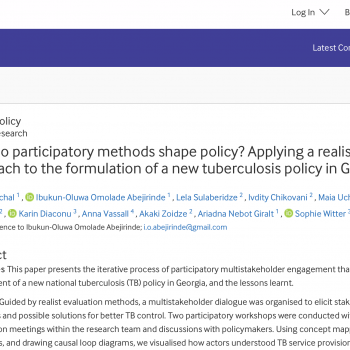
Article: How do participatory methods shape policy? Applying a realist approach to the formulation of a new tuberculosis policy in Georgia
The paper presents the iterative process of participatory multistakeholder engagement that informed the development of a new national tuberculosis (TB) policy in Georgia, and the lessons learned.
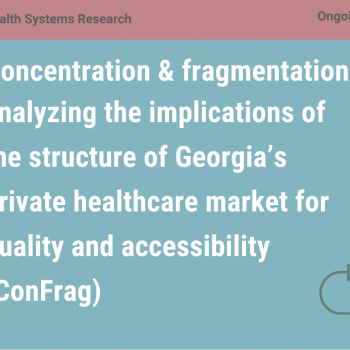
Concentration and fragmentation: analyzing the implications of the structure of Georgia’s private healthcare market for quality and accessibility (ConFrag)
The research project aims to understand what are the risks to quality and accessibility of patient care from excessive concentration and/or fragmentation in private healthcare markets, and what health system policies are available to address these?
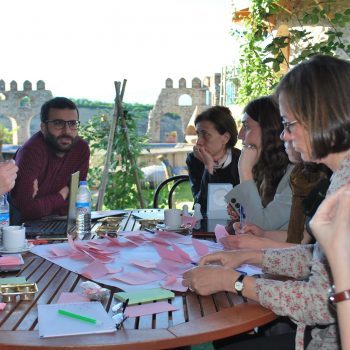
Doing embedded development and research – reflections on the start of the Results4TB programme
Georgia has a high overall tuberculosis treatment success rate, but with wide geographical variation, and a high loss to follow up. Treatment success rate of drug-sensitive patients varies from 50% to 100%. Even more worrying has been the relatively low treatment success rates for multi-drug resistant TB patients, at around 56%.
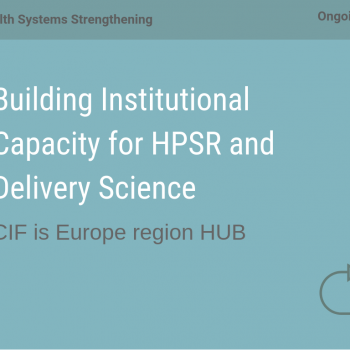
Building Institutional Capacity for HPSR and Delivery Science- CIF is Europe region HUB
The evidence-informed decision making in health still remains a major challenge. To strengthen institutional capacity in different countries around the globe the Alliance for Health Policy and Systems Research (AHPSR) launched the new program to strengthen the capacity of local teaching/research and policy institutions in six low- and middle- income countries in each WHO region.
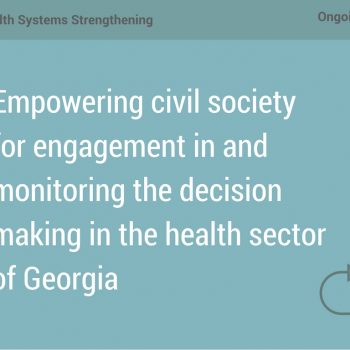
Empowering civil society for engagement in and monitoring the decision making in health sector in Georgia
The project aims to strengthen CSOs working on Health Systems to participate in the decision-making process, to assume watchdog functions, monitor enforcement of policies and advocate for better health for all. The project is funded by Open Society Foundation through proactive cooperation with Open Society Georgian Foundation.
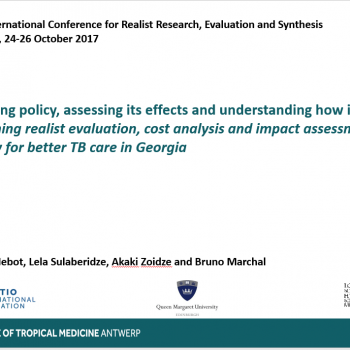
Conference paper about realist evaluation: Informing policy, assessing its effects and understanding how it works for improved Tuberculosis management in Georgia
At the conference research team introduced insights of using Realist Evaluation to not only elicit the Programme Theory of the policy-makers and implementers, but also of the researchers.
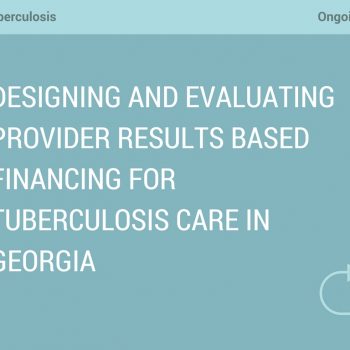
Results4TB: Designing and evaluating provider Results Based Financing for Tuberculosis in Georgia
“Designing and evaluating provider results-based financing for tuberculosis care in Georgia: understanding costs, mechanisms of effect and impact”. The 48-month duration research project will assist the Government of Georgia in developing a provider incentive payment scheme for Tuberculosis (as a pilot intervention) and will generate evidence on its effects on adherence and treatment success rates and costs.

